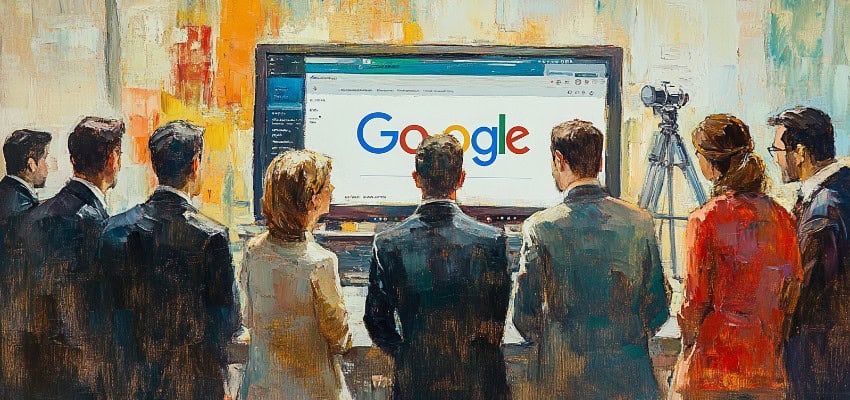Editor’s Note: In a landmark ruling, Google has been found guilty of antitrust violations, signaling a seismic shift in the regulatory landscape for tech giants. This milestone decision by Judge Amit Mehta not only underscores Google’s extensive market dominance but also sets a significant precedent for future antitrust cases against major technology firms. As information governance, cybersecurity, and eDiscovery professionals navigate this evolving landscape, the implications of this ruling cannot be overstated. It highlights the growing regulatory scrutiny on monopolistic practices and heralds a new era of increased competition and regulatory oversight. This case serves as a critical touchstone for understanding the balance between innovation, market dominance, and fair competition.
Content Assessment: Google's Antitrust Ruling: A Landmark Decision that Signals Heightened Scrutiny for Tech Giants
Information - 92%
Insight - 90%
Relevance - 88%
Objectivity - 91%
Authority - 90%
90%
Excellent
A short percentage-based assessment of the qualitative benefit expressed as a percentage of positive reception of the recent article by ComplexDiscovery OÜ titled, "Google's Antitrust Ruling: A Landmark Decision that Signals Heightened Scrutiny for Tech Giants."
Industry News – Antitrust Beat
Google’s Antitrust Ruling: A Landmark Decision that Signals Heightened Scrutiny for Tech Giants
ComplexDiscovery Staff
In a landmark decision, a federal judge has ruled against Google, finding the tech giant guilty of violating antitrust laws. The ruling, delivered by Judge Amit Mehta, marks a significant victory for the Department of Justice and a pivotal moment in the ongoing battle to regulate Silicon Valley’s most influential companies. This decision underscores the extent of Google’s dominance in the search engine market and sets a precedent for future antitrust cases involving major technology firms. The court’s findings have far-reaching implications for Google’s business practices and the broader technology industry, particularly regarding market competition and regulatory oversight.
Central to the ruling was Google’s use of exclusive contracts with device manufacturers and carriers to make its search engine the default on smartphones and web browsers. These agreements, according to the Justice Department, effectively stifled competition by preventing rival search engines from gaining exposure to consumers. The allegations against Google also included claims of paying billions of dollars to secure these default settings, thereby maintaining its monopoly. In 2021 alone, Google spent $26.3 billion on such agreements.
“Google is a monopolist, and it has acted as one to maintain its monopoly,” stated Judge Mehta. The court’s decision was based on evidence that Google’s practices violated Section 2 of the Sherman Act, which prohibits monopolistic practices. As a result, Google may be required to alter its agreements with device manufacturers and carriers, potentially opening the market to competitors like Microsoft’s Bing and DuckDuckGo.
Google’s dominance is evident from its control of around 90% of the online search market and 95% of the smartphone search market. The company’s practices were heavily scrutinized during the trial, with testimony from key industry figures, including Google CEO Sundar Pichai, Microsoft CEO Satya Nadella, and Apple executive Eddy Cue. The ruling highlighted that Google’s exclusionary agreements with companies like Apple and Samsung significantly hindered other search engines’ ability to compete, thus limiting innovation and consumer choice.
The implications of this decision extend beyond Google. The ruling serves as a warning to other major tech companies such as Apple, Amazon, and Meta, indicating that they too could face legal challenges if found engaging in similar anticompetitive practices. This increased scrutiny aligns with a broader regulatory trend both in the United States and globally, aiming to rein in the power of Big Tech companies and ensure a competitive marketplace.
The Google case is the first major antitrust victory for the Justice Department in two decades and lays the groundwork for addressing other monopolistic behaviors within the tech industry. Attorney General Merrick Garland praised the decision, calling it a “historic win for the American people.” He emphasized that no company, regardless of its size or influence, is above the law. White House Press Secretary Karine Jean-Pierre echoed this sentiment, describing the ruling as a victory for competition and fairness in the digital marketplace.
However, the legal battle is far from over. Google has announced its intention to appeal the decision, arguing that its search engine provides superior capabilities that benefit consumers. The company contends that the market remains competitive and that its agreements are a standard business practice designed to enhance user experience. Despite this, the initial ruling sets a critical precedent and may lead to significant changes in how Google operates.
Moving forward, the court will consider appropriate remedies for Google’s antitrust violations. Potential outcomes include imposing restrictions on Google’s business practices or even breaking up Alphabet, Google’s parent company. Such measures could reshape the digital advertising market, where Google has long been a dominant player.
This decision is part of a wider movement towards stronger antitrust enforcement in the technology sector. It signals to other tech giants that regulatory authorities are serious about curbing monopolistic practices and ensuring a level playing field. The global nature of the technology industry means that this ruling could inspire similar regulatory actions in other countries, potentially leading to a more fragmented yet competitive market landscape.
For consumers, this ruling could result in more choices and improved services in the search engine market. Increased competition may drive innovation, offering users better search algorithms, enhanced privacy options, and a broader range of features.
News Sources
- Massive setback for Google as US District court finds it guilty of monopoly over search market
- Google Antitrust Ruling: A Landmark Decision in the Tech Industry
- Judge rules that Google ‘is a monopolist’ in US antitrust case
- Court Finds Company Has Monopoly Over Search
- Google Antitrust Lawsuit: Court Finds Company Has Monopoly Over Search
Assisted by GAI and LLM Technologies
Additional Reading
- HSR Act Reporting: A ComplexDiscovery Chronology
- FTC Annual Competition Reports (Hart-Scott-Rodino Act Reports)
Source: ComplexDiscovery OÜ


























